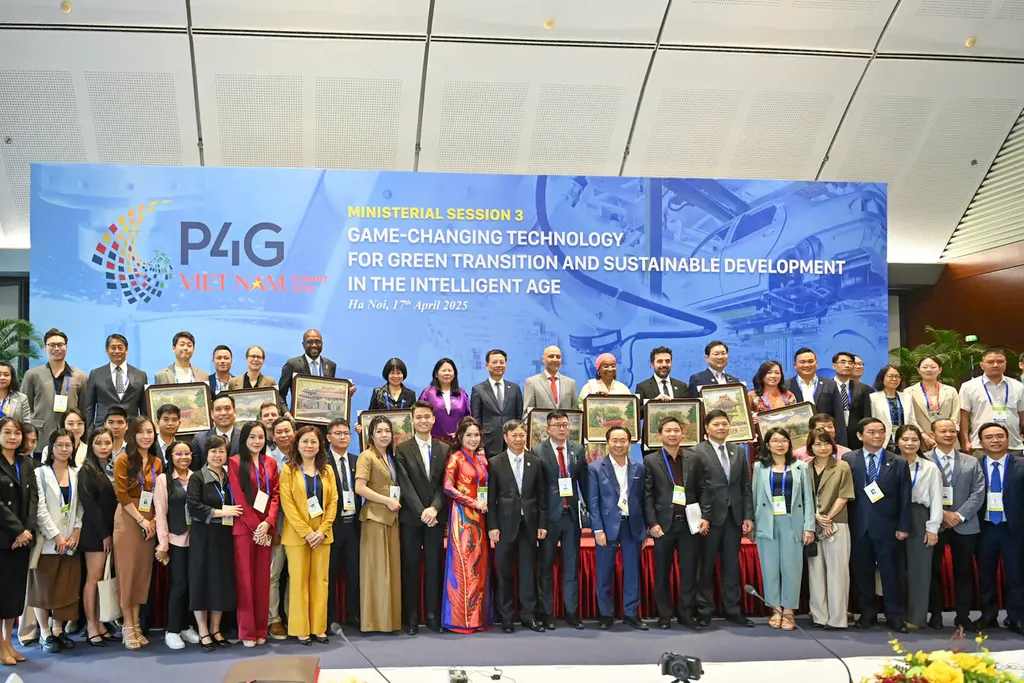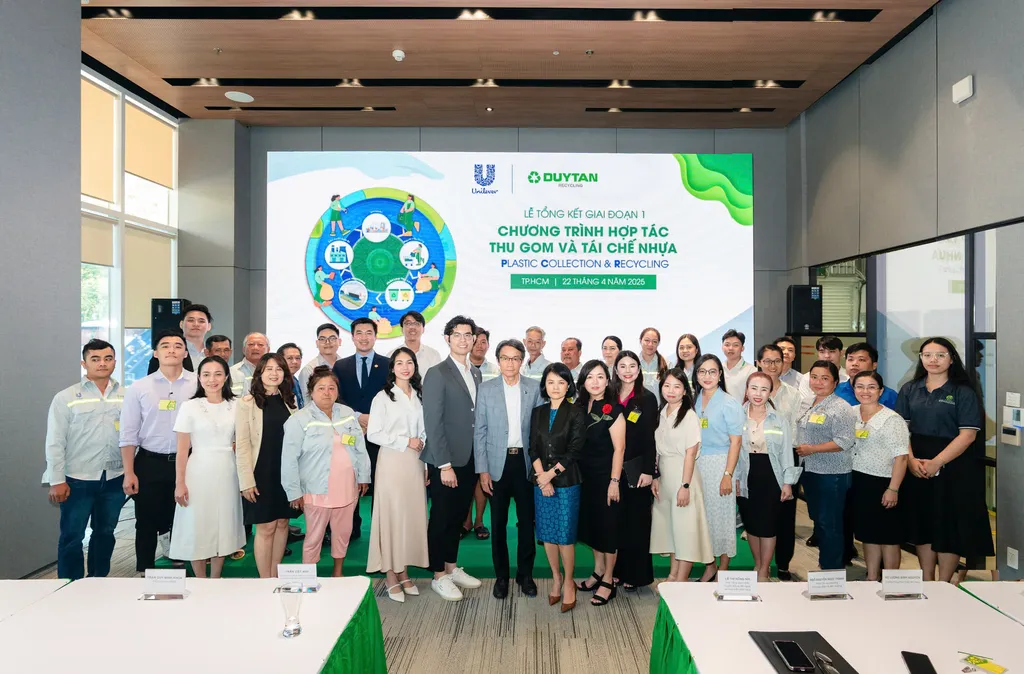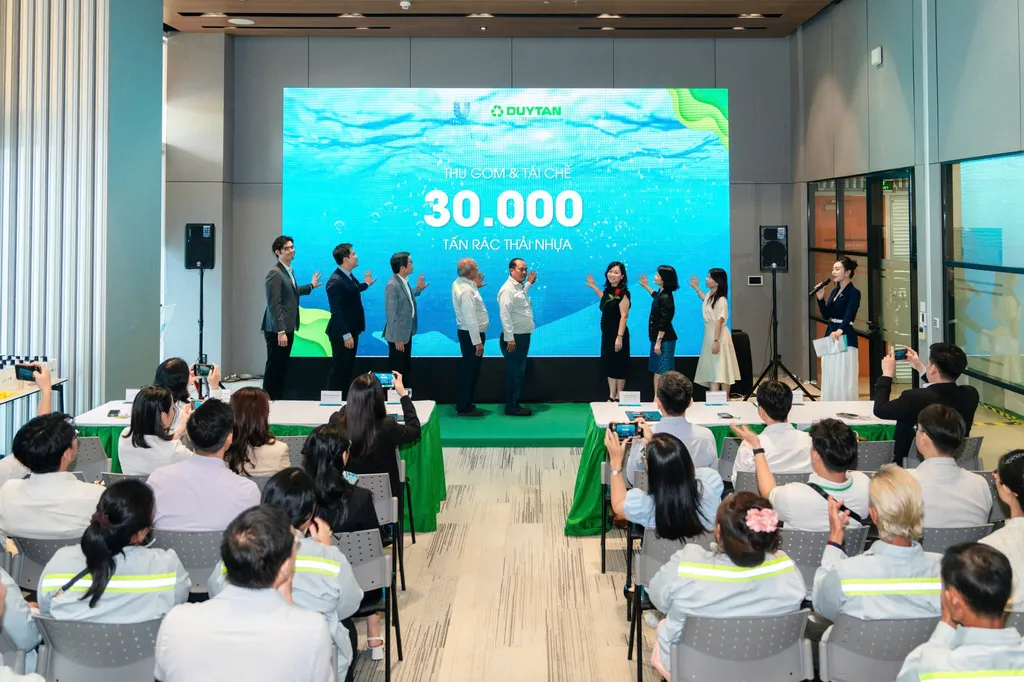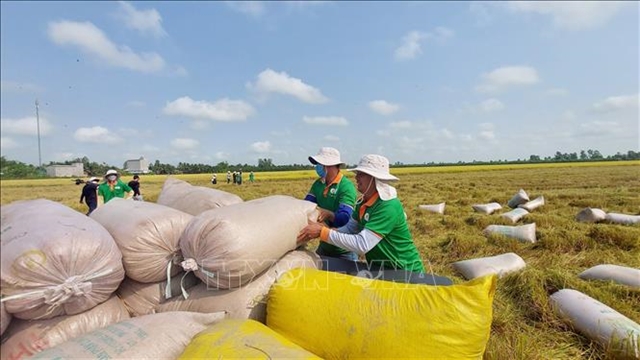 Brandinfo
Brandinfo

HÀ NỘI — As Việt Nam intensifies its commitment to a green transition in line with global sustainability goals, Unilever Vietnam is asserting itself as a leading force in the movement toward a circular economy, particularly in tackling one of the country’s most pressing environmental challenges - plastic waste.
The imperative for green transformation has never been more urgent.
At the P4G Summit held on April 17, Prime Minister Phạm Minh Chính underscored the strategic necessity of this shift.
"Green transformation is an inevitable journey, an objective requirement, a strategic choice and a top priority to successfully achieve sustainable development goals," he said.
The PM emphasised that this journey requires global and multi-stakeholder cooperation - engaging governments, businesses, communities and individuals - to ensure inclusive, equitable development where no one is left behind.
This national vision has been met with a strong response from the private sector.
 |
| Lê Thị Hồng Nhi, director of Communications, External Affairs and Sustainable Development, attended the P4G Summit in April. — Photo courtesy of the company |
Representing Unilever Vietnam at the same summit, Lê Thị Hồng Nhi, director of Communications, External Affairs and Sustainable Development, highlighted the corporation’s strategic role in Việt Nam’s green transformation.
This is the ideal time for the private sector to take a more active and in-depth role in developing sustainable solutions, she said.
Nhi also pointed to plastic pollution as one of the most significant environmental challenges facing both Việt Nam and the global community.
Pioneering public - private collaboration
Unilever Vietnam’s environmental agenda aligns closely with the theme of World Environment Day 2025, 'eat Plastic Pollution', as launched by the United Nations Environment Programme (UNEP).
In this spirit, the company has embedded circular economy principles deeply into its operations, with a clear strategy aimed at reducing, recycling and reusing plastic waste.
A cornerstone of this strategy is Unilever’s participation in the Public-Private Collaboration (PPC) network, formed in partnership with the Ministry of Agriculture and Environment.
 |
| The programme '2024 Circular Plastic Innovation Solutions' as part of the PPC framework. — Photo courtesy of the company |
PPC serves as a collaborative platform to promote circular economic models in plastic waste management. As one of its founding members, Unilever Vietnam has played an instrumental role in shaping this initiative.
By 2024, the partnership had yielded notable outcomes. More than 17,000 tonnes of plastic waste had been collected, treated and recycled.
The company also reported that 77 per cent of its product packaging was now recyclable and that it had reduced virgin plastic usage in packaging by 55 per cent - a result achieved through both direct material reductions and the increased incorporation of recycled plastics.
PPC’s value goes beyond operational achievements. It has catalysed public awareness campaigns, helped define national recycling standards and laid the foundation for more efficient waste collection and processing systems.
Most importantly, it has brought together key stakeholders – government agencies, businesses and civil society – to build a robust, multidimensional network for sustainable development.
Working with Duy Tan Recycling
Unilever Vietnam’s environmental commitment is further evidenced by its collaboration with Duy Tan Recycling, one of the country’s foremost plastic recycling firms.
This partnership represents a practical, on-the-ground extension of the company’s sustainability strategy and is aimed at both environmental protection and social impact.
 |
| The closing ceremony for Phase 1 of the plastic collection and recycling partnership between Unilever Vietnam and Duy Tan Recycle. — Photo courtesy of the company |
As of 2025, the initiative had successfully collected and recycled 15,079 tonnes of plastic waste.
This effort not only mitigated environmental damage but also contributed to the development of a formalised waste management sector - one that increasingly recognises the contributions of informal waste workers.
More than 1,100 informal workers have benefitted from this initiative through enhanced working conditions, improved income security and greater awareness of occupational safety.
These outcomes illustrate the project’s dual-impact design: advancing environmental goals while promoting inclusive economic development.
Looking ahead, Unilever Vietnam and Duy Tan Recycling have committed to significantly scaling up their efforts.
 |
| Unilever Vietnam and Duy Tan Recycling have set a goal to collect and recycle 30,000 tonnes of plastic waste between 2025 and 2027. — Photo courtesy of the company |
From 2025 to 2027, the partnership aims to collect and recycle 30,000 tonnes of plastic waste.
The programme will also expand social support initiatives for waste collectors, enhance labour conditions and invest in community education campaigns focused on waste segregation at the source.
The breadth and depth of Unilever Vietnam’s initiatives reflect a long-term commitment to sustainability that extends well beyond compliance or corporate social responsibility.
Instead, environmental stewardship is positioned as a central pillar of the company’s strategic roadmap in Việt Nam.
This journey not only addresses the urgent issue of plastic waste but also contributes positively to Việt Nam’s green transformation goals – toward a prosperous and sustainable future for our shared home. — BIZHUB/VNS




